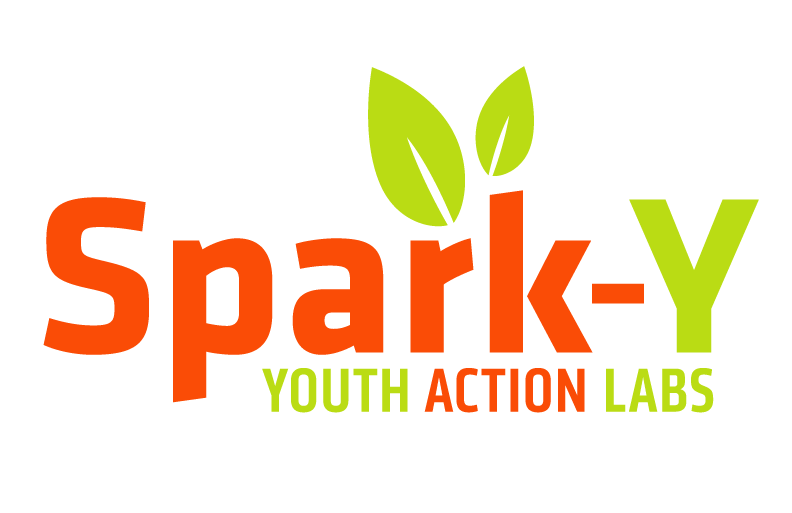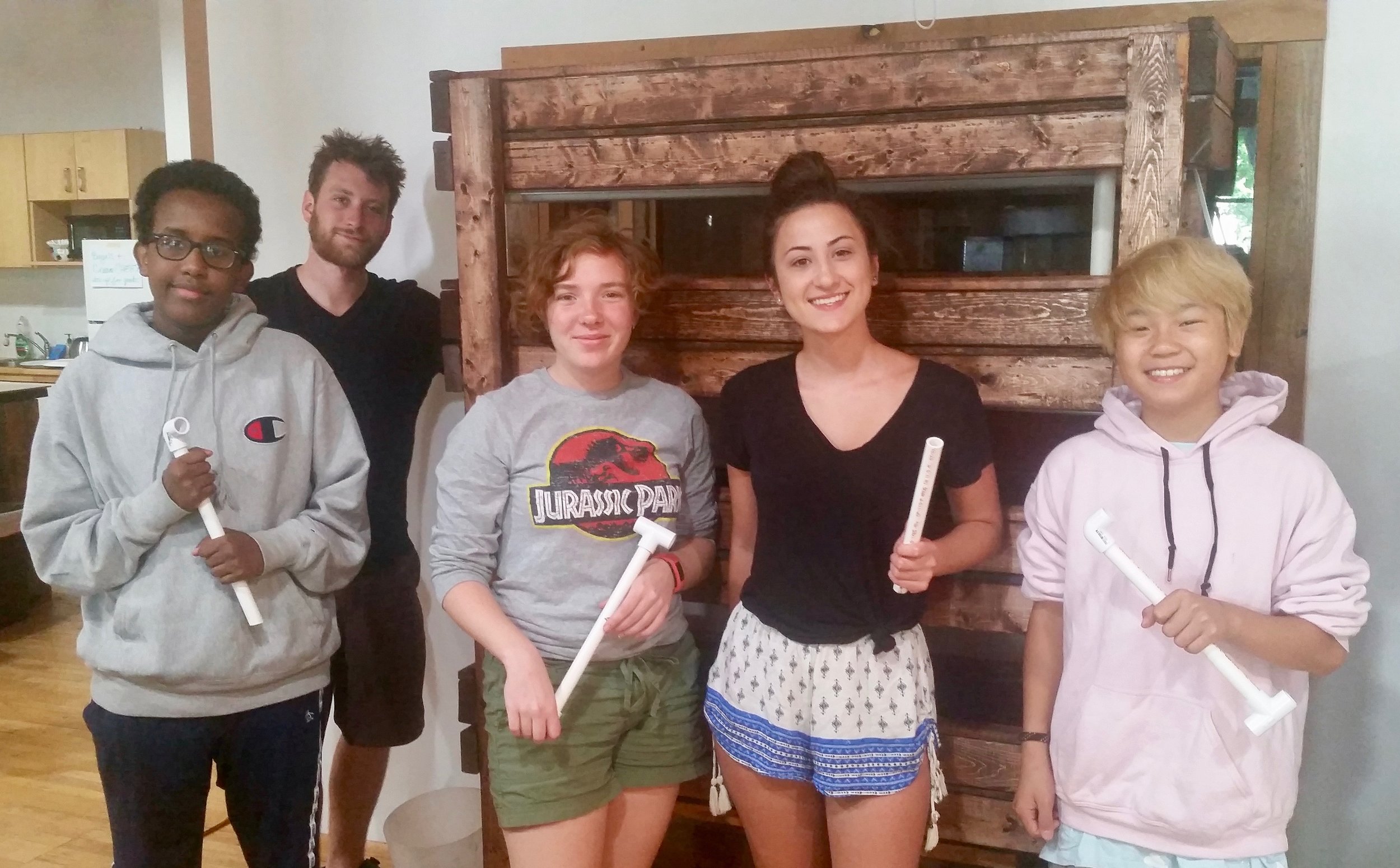The following blog post was written by 2018 Lube-Tech Internship Team: Isabelle Paulsen, Tarryn Michelson, Hamza Yusuf, Isaac Groven.
Form and function are always battling; to get one you need to make concessions for the other. Many assume that sustainability is only associated with function, however, we are proving that sustainability can be equal parts of both. With the help of the Bame Foundation, our project is to build an aquaponics system in the Golden Valley office of Lube-Tech, a Minnesota based industrial lubrication distributor and recycler. But this is no ordinary aquaponics system. Our focus is to make this an aesthetically pleasing structure that belongs in an office, not just a functional garden. From the final design to the plants and fish that will grow in this system, we have had the opportunity to totally create a system we believe our client will love and spread Spark-Y’s vision of accessible sustainability. This is not a plain fish tank nor is it solely a structure to grow mass amounts of food; instead we are combining the two features to create a system where beauty and being environmentally-friendly coincide.
As an avid Minnesota outdoorsman, Lube-Tech’s CEO Chris Bame hoped to have only native Minnesotan fish swim in this tank. We loved this idea so much we decided to use as many Minnesotan and locally-sourced species as we could. For our fish, we are housing large mouth bass and walleye, sourced from a local Forest Lake pet store. The rest of our 232 gallon tank will be filled with bluegill from our very own Spark-Y Urban Agriculture Lab. We want to give a special shout out to the Urban Ag Lab intern team that is helping make this transfer possible. For our plants, Minnesota native mint and watercress will be planted alongside basil, lettuce, arugula, and spinach. Sustainability starts with the community and buying or sourcing locally is a great way to make a difference.
Minnesotan woodworker Brandon Anderson is turning this system into a work of art that will fit in any space. We are working together to make aquaponics accessible, that anyone who walks into Lube-Tech’s office will say: “Wow, how do I get this system?” It might not produce the most food, but it challenges the way we think about sustainability by turning food systems into something we want rather than just need. It is not just making sustainability functional but aesthetic too, from hobbyists to businesses around the community. Our small actions add up to make a big difference, but this system is also an example of how companies are taking steps towards sustainability and making large scale change.
Overall this project has taught us that patience is key. We expected this project to be fast paced and finished quickly, however, we are 5 weeks into it and have hit roadbumps and been stalled. We aren't where we expected to be when we began the project, but we have adjusted and changed the plan. From email communications to waiting for seeds to grow, we are making adjustments. This project may be going slow, but the end product will be a visual representation of the world becoming more sustainable in new and creative ways.




